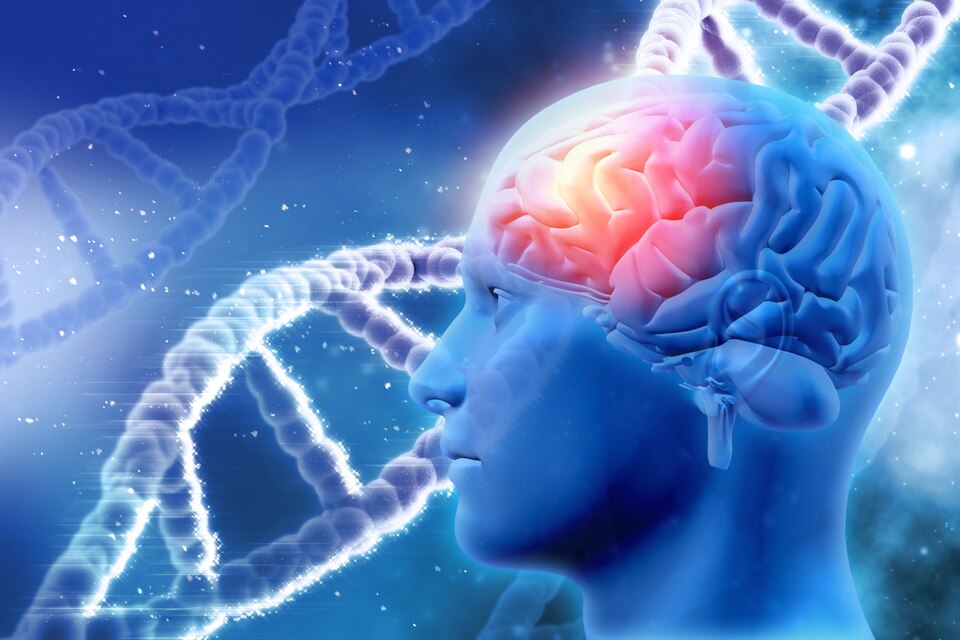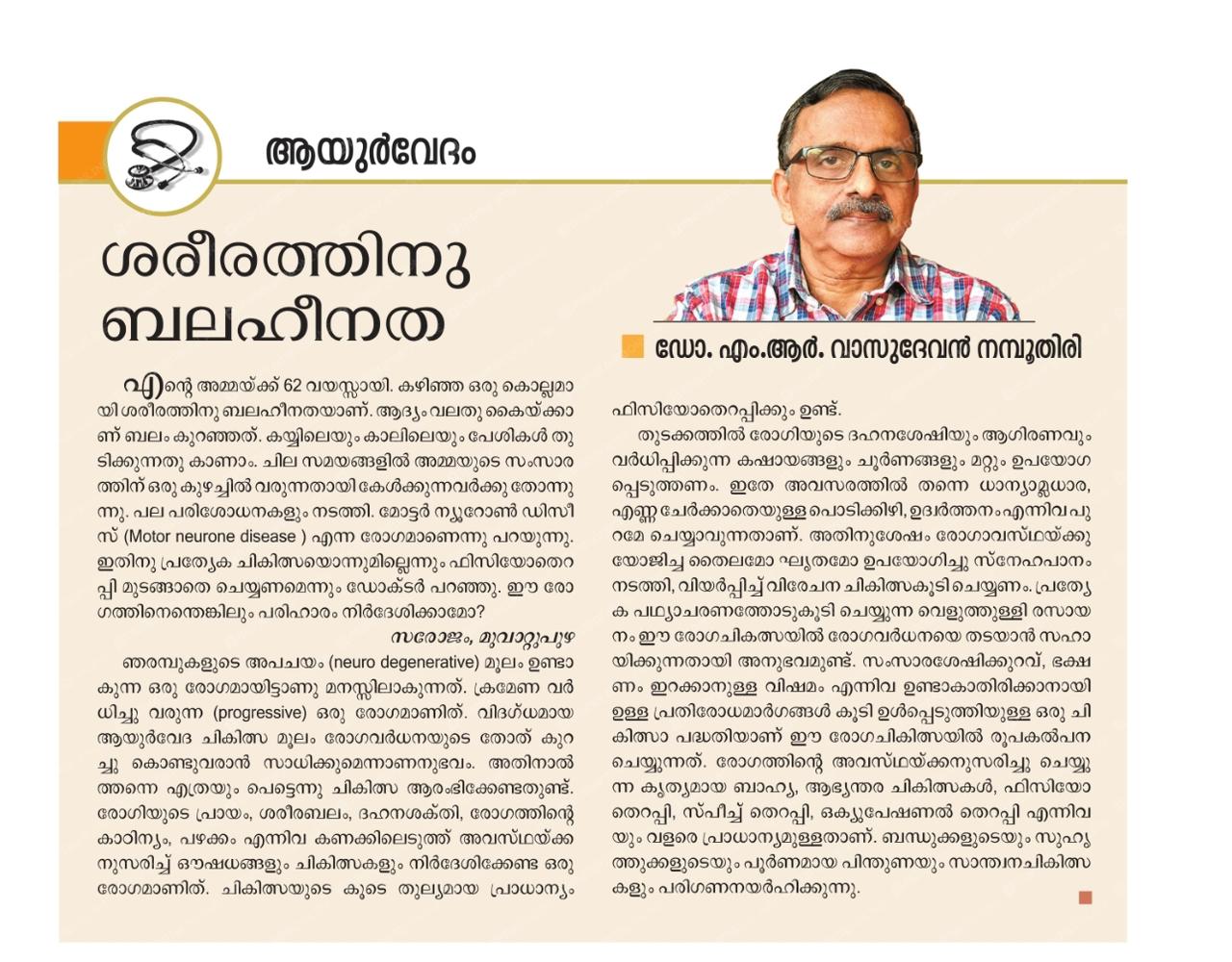Sarojam’s mother, aged 62, has been experiencing a gradual decline in her physical health over the past year. Initially, she noticed a loss of strength in her right hand, accompanied by noticeable muscle twitches in her arms and legs. On certain occasions, others could discern a slight slurring in her speech. After undergoing numerous medical examinations, Sarojam’s mother received a diagnosis of motor neuron disease. The doctor informed them that currently, there is no known cure for this condition but recommended continuous physiotherapy as a potential approach. Now, Sarojam seeks suggestions for possible solutions to combat this disease. Here is the detailed analysis of Dr. M.R. Vasudevan Namboothiri on Ayurvedic management of neurodegenerative disease.
According to Dr. M.R. Vasudevan Namboothiri, this disease is classified as a progressive neurodegenerative disease. Dr. Namboothiri suggests that ayurvedic treatment has the potential to slow down the progression of the disease. He emphasizes the importance of initiating treatment as early as possible. Personalized medication and therapies are recommended in Ayurvedic management of neurodegenerative disease, taking into account of individual factors such as age, physical strength, digestive capacity, disease severity, and stage of progression. Additionally, Dr. Namboothiri highlights the equal significance of incorporating physiotherapy into the treatment plan.

Ayurvedic Management of Neurodegenerative Disease by Dr. Namboothiry
During the initial stages, various remedies such as kashayam, choorna, and similar treatments can be administered to improve digestion and absorption. Dr. Namboothiri also recommends considering treatments like Dhaniyamladhara, oil-free Podhikizhi, and Udwarna. Subsequently, he suggests the use of suitable oils for Snehapanam, as well as Vrechena treatment through induced sweating. Including garlic rasayana in a specialized diet has shown promise in slowing down the progression of the disease.
A comprehensive treatment program is designed to address the prevention of speech difficulties and swallowing problems. This program incorporates various measures, including suitable external and internal treatments, physiotherapy, speech therapy, and occupational therapy, all tailored to the specific condition of the disease. Moreover, Dr. Namboothiri emphasizes the crucial role played by relatives and friends in providing support and palliative care for overall management.

Leave a Reply